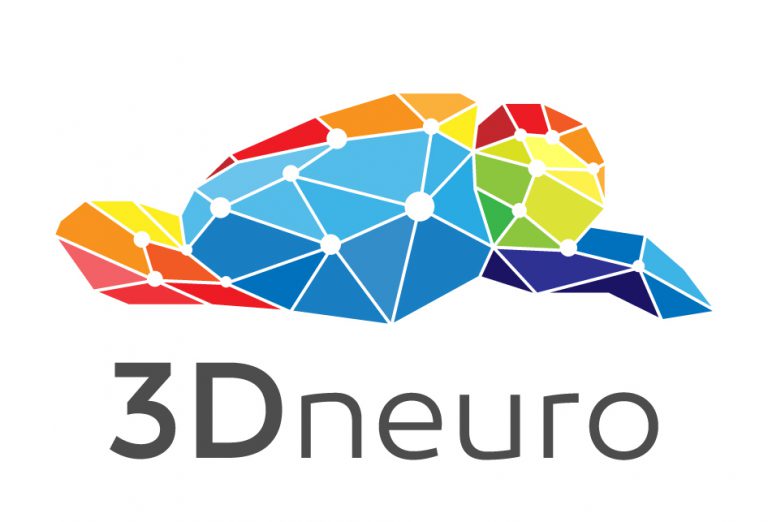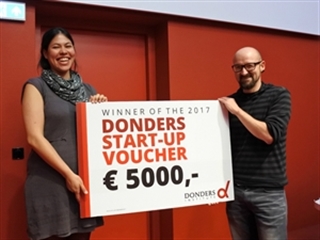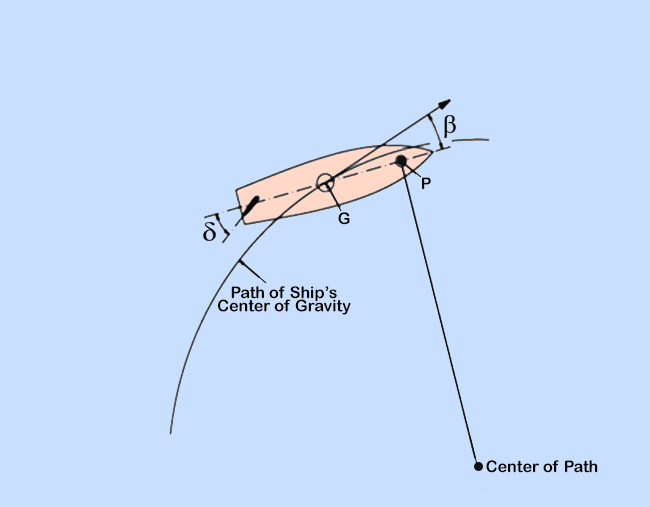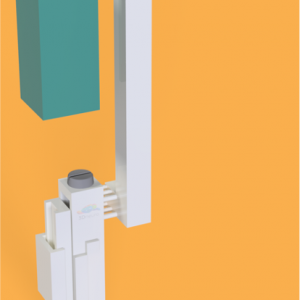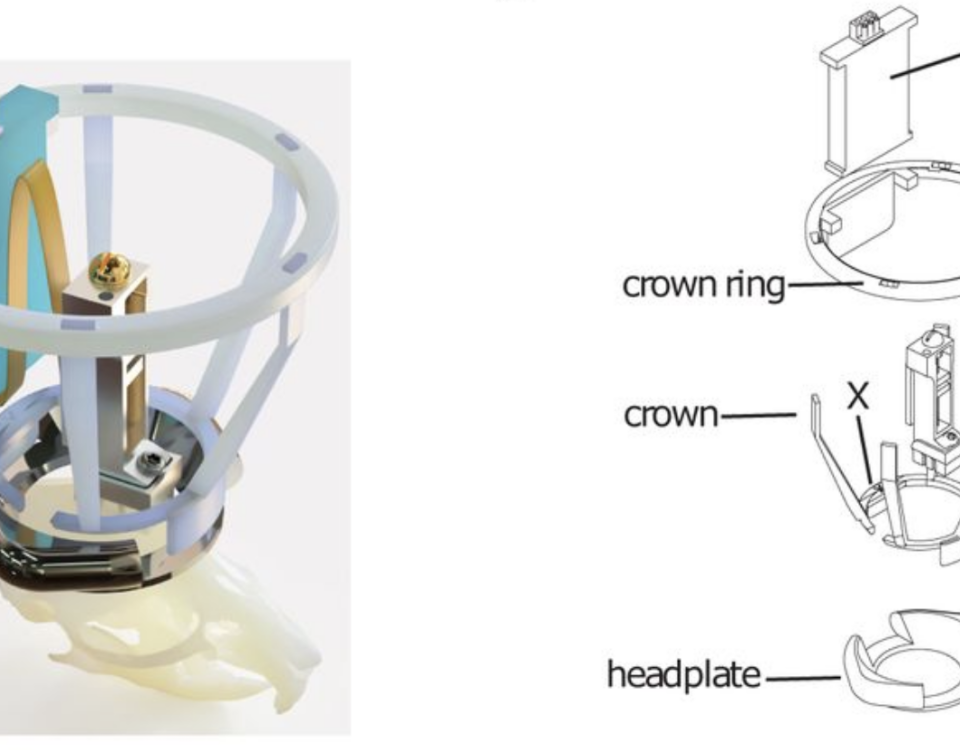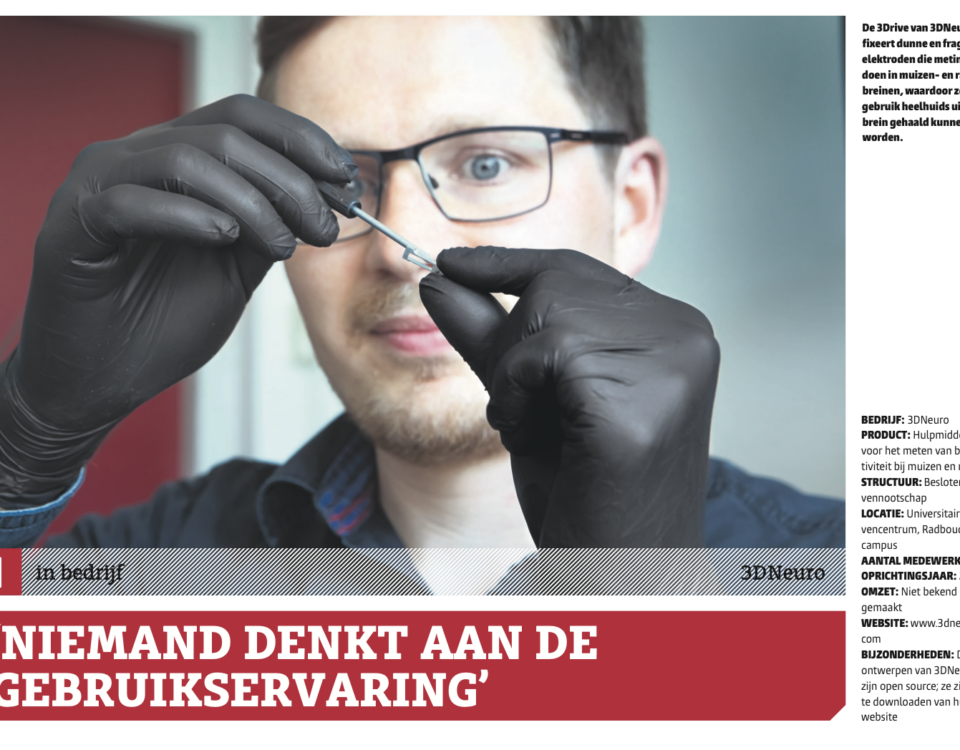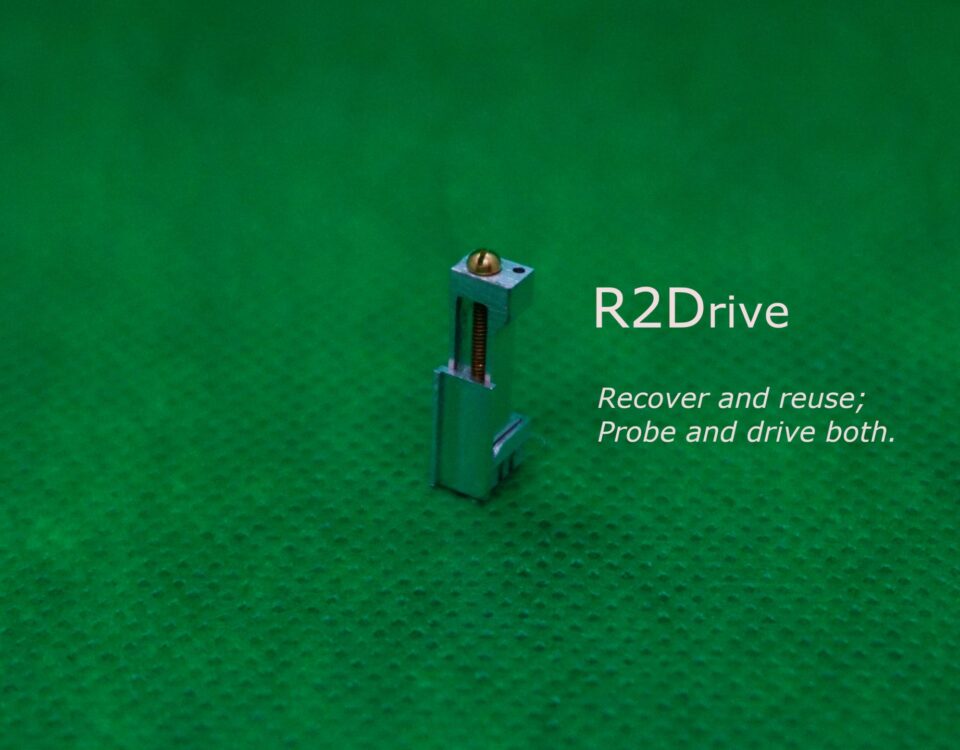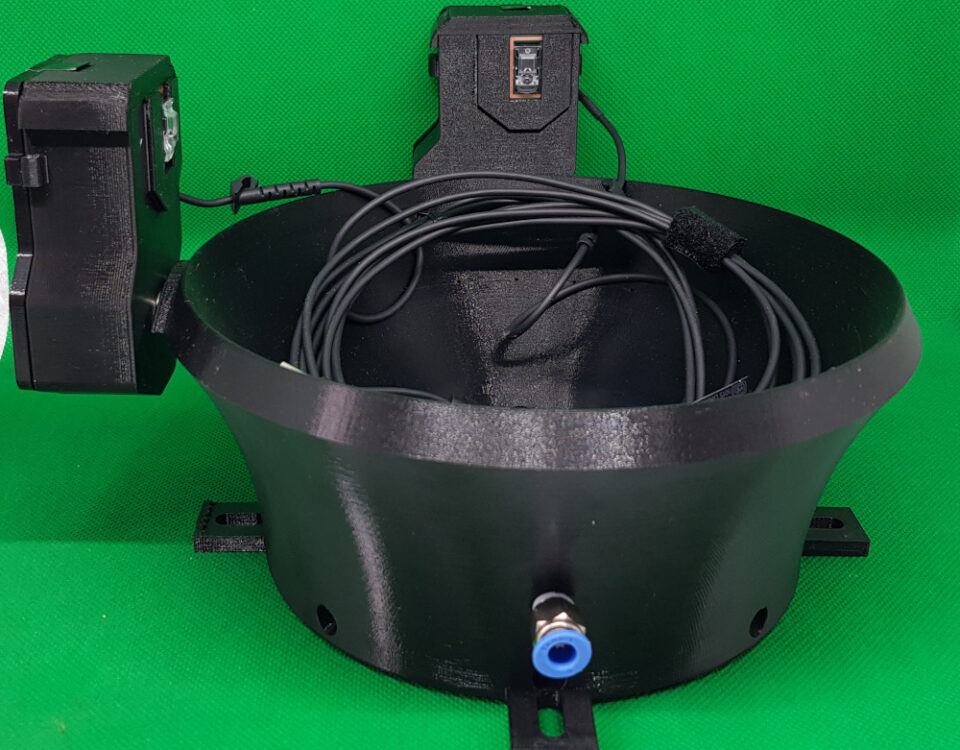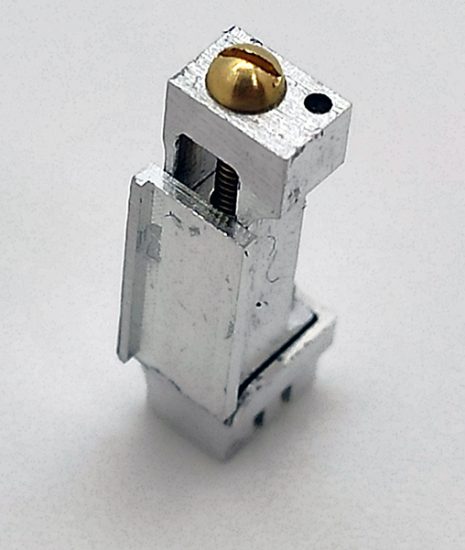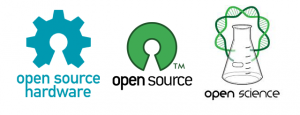Solutions for in vivo electrophysiology
In systems neuroscience, researchers often push the limits of experimental methods and equipment. We're here to help!
With a focus on brain implants in animal models, we help researchers who want to record neural activity to realize their new ideas faster and easier. To do that, we push the limits of 3D printing and machining to produce designs that combine performance, handling ease and user priorities such as enabling electrode reuse.
We also collaborate on multiple custom R&D projects, from rodent head fixation in VR setups and MRI scanners to various treadmill designs.
In line with our mission, we actively contribute to the open source/open hardware space.
See our X account @3Dneuro for company news and views.
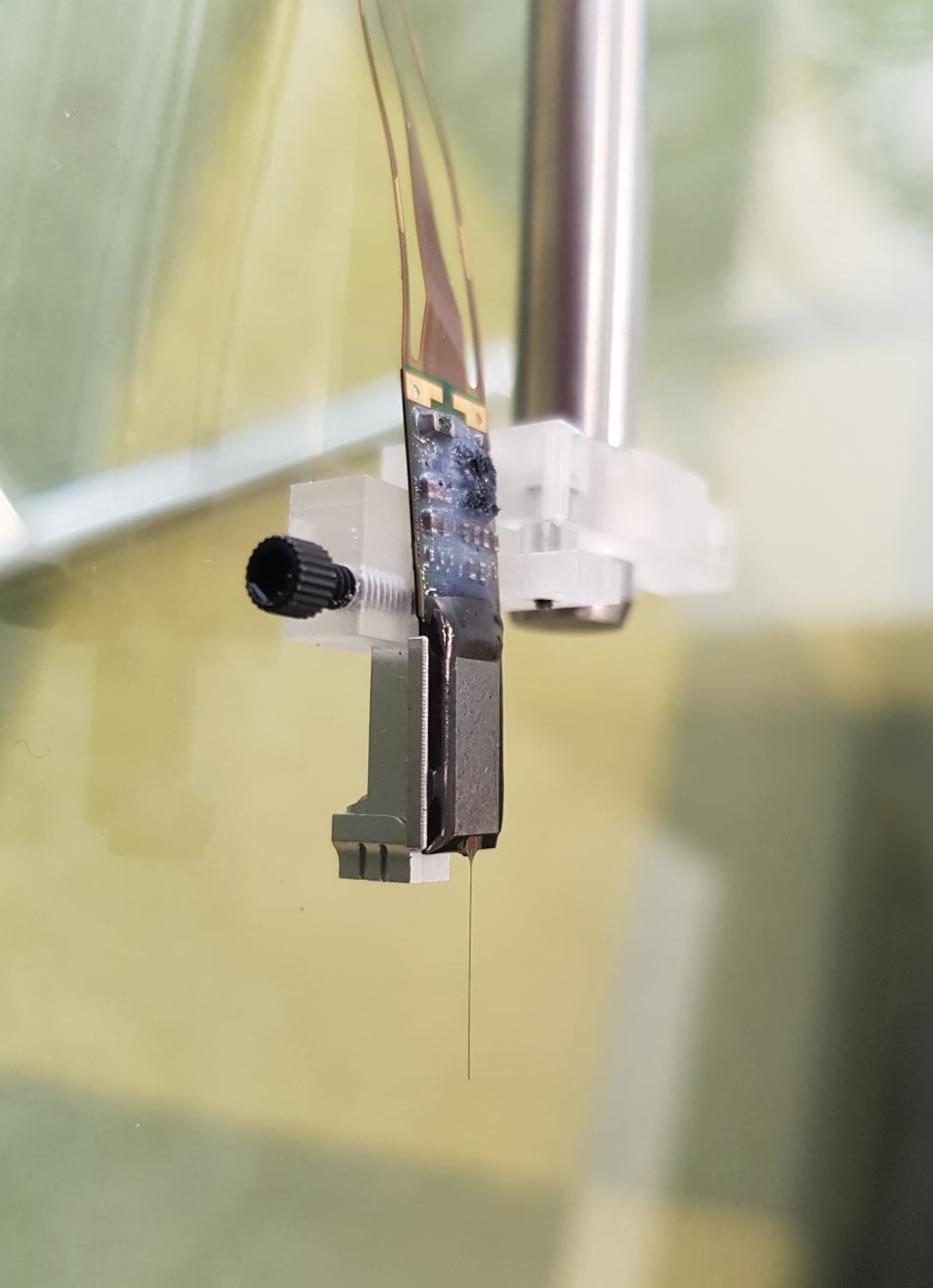
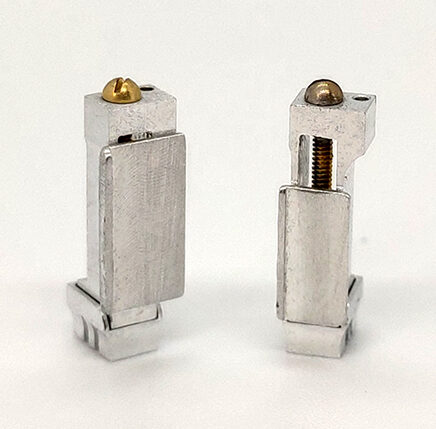
Create your quote
Get everything you need, quickly and easily!
We specialize in making custom implants for in vivo (rodent) electrophysiology, to help researchers use cutting-edge high-density silicon probes, by themselves or together with other recording and stimulation tools.
What our users say

3Dneuro drives are amazing, it now takes us mere minutes to recover previously implanted probes and shanks almost never break. It allows us to keep re-implanting the same probe until the recording sites wear off, it’s an absolute game changer and also a considerable money saver.
Read more:Model system Freely moving rats Number of R2Drives per implant up to two Duration of experiments Up to 1 week Probe recovery success Pretty much 100% of the time Read more about Adrian's research and how he uses the R2Drive here.
Adrian J Duszkiewicz, PhD
Postdoctoral Fellow, Paul Dudchenko’s laboratory, University of Stirling
My first introduction to probe implants was using a drive that was completely incased in dental cement. The probe was not recoverable, and the drive was three times as expensive. R2Drives completely changed things for me. The R2Drives make probe implants and explants easy. I’m now able to reuse probes several times over, and the R2Drive remains reliable throughout reuse.
Read more:Model system Mouse - freely moving and headfixed. I have used rats in the past Number of R2Drives per implant 1 Duration of experiments 2 – 6 months Probe recovery success I have recovered 100% of my probes with the R2Drive, and reuse them at least 3 times (depending on the proportion of good channels). Read more about Laura's research and how she uses the R2Drive here.
Laura Berkowitz, PhD
Postdoctoral Fellow, Schaffer-Nishimura lab, Cornell University
We utilize the R2Drives in pretty much every chronic implant that involves our silicon probes, it is extremely important for us to have a reliable and accurate way to implant our optoelectrodes. Recoverability is also a key feature that allows us to extend the life of a device over multiple implantations. Everyone who has worked with silicon probes knows how stressful it can be to handle them, having an easy-to-use platform is of great help. I always recommend them to our workshop participants.
Read more:Model system Rats and mice, freely moving and headfixed Number of R2Drives per implant Usually just one, but we have plans of implanting up to 4 on a rat Probe recovery success Every time, I haven’t had any issues with probe recovery. Read more about Roberto's research and how he uses the R2Drive here.
Jose Roberto Lopez Ruiz, PhD
Research Investigator, Yoon Lab, University of Michigan
3Dneuro drives are amazing, it now takes us mere minutes to recover previously implanted probes and shanks almost never break. It allows us to keep re-implanting the same probe until the recording sites wear off, it’s an absolute game changer and also a considerable money saver.
Read more:Model system Freely moving rats Number of R2Drives per implant up to two Duration of experiments Up to 1 week Probe recovery success Pretty much 100% of the time Read more about Adrian's research and how he uses the R2Drive here.
Adrian J Duszkiewicz, PhD
Postdoctoral Fellow, Paul Dudchenko’s laboratory, University of Stirling
My first introduction to probe implants was using a drive that was completely incased in dental cement. The probe was not recoverable, and the drive was three times as expensive. R2Drives completely changed things for me. The R2Drives make probe implants and explants easy. I’m now able to reuse probes several times over, and the R2Drive remains reliable throughout reuse.
Read more:Model system Mouse - freely moving and headfixed. I have used rats in the past Number of R2Drives per implant 1 Duration of experiments 2 – 6 months Probe recovery success I have recovered 100% of my probes with the R2Drive, and reuse them at least 3 times (depending on the proportion of good channels). Read more about Laura's research and how she uses the R2Drive here.
Laura Berkowitz, PhD
Postdoctoral Fellow, Schaffer-Nishimura lab, Cornell University
We utilize the R2Drives in pretty much every chronic implant that involves our silicon probes, it is extremely important for us to have a reliable and accurate way to implant our optoelectrodes. Recoverability is also a key feature that allows us to extend the life of a device over multiple implantations. Everyone who has worked with silicon probes knows how stressful it can be to handle them, having an easy-to-use platform is of great help. I always recommend them to our workshop participants.
Read more:Model system Rats and mice, freely moving and headfixed Number of R2Drives per implant Usually just one, but we have plans of implanting up to 4 on a rat Probe recovery success Every time, I haven’t had any issues with probe recovery. Read more about Roberto's research and how he uses the R2Drive here.
Jose Roberto Lopez Ruiz, PhD
Research Investigator, Yoon Lab, University of Michigan
3Dneuro drives are amazing, it now takes us mere minutes to recover previously implanted probes and shanks almost never break. It allows us to keep re-implanting the same probe until the recording sites wear off, it’s an absolute game changer and also a considerable money saver.
Read more:Model system Freely moving rats Number of R2Drives per implant up to two Duration of experiments Up to 1 week Probe recovery success Pretty much 100% of the time Read more about Adrian's research and how he uses the R2Drive here.
Adrian J Duszkiewicz, PhD
Postdoctoral Fellow, Paul Dudchenko’s laboratory, University of Stirling
We ship worldwide and have served clients at the following institutions:

- 2020-02-11
3Dneuro joins iNavigate, a Horizon 2020 consortium tackling navigation with brain-inspired methods
iNavigate is a recently funded project, under the Horizon 2020 MSCA RISE program for a period of four years, starting December 2019. Last week was the […]
Read more - 2018-06-06
The rise of 3D printing in neuroscience research
In recent years, 3D printing technology has been getting better and cheaper, bringing performance usually accessible only to large industrial companies into the consumer market. New […]
Read more - 2018-05-03
Donders Startup Voucher
Since 2016, the Donders Institute for Brain, Cognition, and Behaviour awards 5000€ to scientists that want to take an idea from the lab to create bigger […]
Read more - 2018-05-02
3Dneuro is online!
Today, we are finally online and presenting 3Dneuro to the neuroscience community. A bit more than two years ago, Abdel, Martha, and Tim chatted for the […]
Read more - 2025-04-03
Revising our pricing and growth strategy
As an open source company, we aim for a certain level of transparency. For example, our prices are publicly available. Today, we will also open up […]
Read more - 2024-03-11
3Drive phased out
Our first microdrive was based on a single idea: Protect the silicon probe! To achieve that, we often flirted with the limits of 3D printing. The […]
Read more - 2024-03-08
Methods preprints!
In the past month, two preprints featuring 3Dneuro were posted online and submitted for peer-review. This work is the result of longstanding collaborations with the Genzel […]
Read more - 2022-06-15
Press: 3Dneuro featured in Dutch newsletter Bionieuws
Last month, Bionieuws – a professional newsletter for biologists – ran a feature on 3Dneuro (Letter 7, May 14 2022). Our co-founder Tim can be seen […]
Read more - 2021-05-21
R2Drive preorder update
This week, we announced on Twitter a preorder round for our first production run of the R2Drive. This microdrive was designed by the Buzsáki lab at NYU, with a focus […]
Read more - 2021-05-18
Hosting open hardware files on Zenodo: Durable and citable resource sharing
Recently, while preparing our next open hardware project, we researched how to best share the design files. Originally we decided to self-host, with the idea of […]
Read more - 2021-04-23
New metal microdrive in collaboration with the Buzsáki lab
We are very excited to announce our new collaboration with the Buzsáki lab at NYU. Their new microdrive for silicon probes is: The metal microdrive and […]
Read more - 2020-11-30
Recent Nature feature on DIY science equipment
On Nov 17 2020, the journal Nature published a feature about how “How DIY technologies are democratizing science” by Sandeep Ravindran. Key takeaways: “The idea that […]
Read more - 2020-11-25
Tech Hotel: A new collaboration for 3Dneuro
Here’s another project delayed by COVID-19 that we’re finally starting. Tech Hotel is a grant from the Dutch Research Council (NWO) that focuses on technological advances and knowledge […]
Read more - 2020-05-27
A little opening: Sharing some designs as open hardware
We believe value creation – be it new software, hardware or methods – comes with a moral obligation to make it available to everyone who needs […]
Read more - 2020-02-11
3Dneuro joins iNavigate, a Horizon 2020 consortium tackling navigation with brain-inspired methods
iNavigate is a recently funded project, under the Horizon 2020 MSCA RISE program for a period of four years, starting December 2019. Last week was the […]
Read more - 2018-06-06
The rise of 3D printing in neuroscience research
In recent years, 3D printing technology has been getting better and cheaper, bringing performance usually accessible only to large industrial companies into the consumer market. New […]
Read more - 2018-05-03
Donders Startup Voucher
Since 2016, the Donders Institute for Brain, Cognition, and Behaviour awards 5000€ to scientists that want to take an idea from the lab to create bigger […]
Read more - 2018-05-02
3Dneuro is online!
Today, we are finally online and presenting 3Dneuro to the neuroscience community. A bit more than two years ago, Abdel, Martha, and Tim chatted for the […]
Read more - 2025-04-03
Revising our pricing and growth strategy
As an open source company, we aim for a certain level of transparency. For example, our prices are publicly available. Today, we will also open up […]
Read more - 2024-03-11
3Drive phased out
Our first microdrive was based on a single idea: Protect the silicon probe! To achieve that, we often flirted with the limits of 3D printing. The […]
Read more - 2024-03-08
Methods preprints!
In the past month, two preprints featuring 3Dneuro were posted online and submitted for peer-review. This work is the result of longstanding collaborations with the Genzel […]
Read more - 2022-06-15
Press: 3Dneuro featured in Dutch newsletter Bionieuws
Last month, Bionieuws – a professional newsletter for biologists – ran a feature on 3Dneuro (Letter 7, May 14 2022). Our co-founder Tim can be seen […]
Read more - 2021-05-21
R2Drive preorder update
This week, we announced on Twitter a preorder round for our first production run of the R2Drive. This microdrive was designed by the Buzsáki lab at NYU, with a focus […]
Read more - 2021-05-18
Hosting open hardware files on Zenodo: Durable and citable resource sharing
Recently, while preparing our next open hardware project, we researched how to best share the design files. Originally we decided to self-host, with the idea of […]
Read more - 2021-04-23
New metal microdrive in collaboration with the Buzsáki lab
We are very excited to announce our new collaboration with the Buzsáki lab at NYU. Their new microdrive for silicon probes is: The metal microdrive and […]
Read more - 2020-11-30
Recent Nature feature on DIY science equipment
On Nov 17 2020, the journal Nature published a feature about how “How DIY technologies are democratizing science” by Sandeep Ravindran. Key takeaways: “The idea that […]
Read more - 2020-11-25
Tech Hotel: A new collaboration for 3Dneuro
Here’s another project delayed by COVID-19 that we’re finally starting. Tech Hotel is a grant from the Dutch Research Council (NWO) that focuses on technological advances and knowledge […]
Read more - 2020-05-27
A little opening: Sharing some designs as open hardware
We believe value creation – be it new software, hardware or methods – comes with a moral obligation to make it available to everyone who needs […]
Read more - 2020-02-11
3Dneuro joins iNavigate, a Horizon 2020 consortium tackling navigation with brain-inspired methods
iNavigate is a recently funded project, under the Horizon 2020 MSCA RISE program for a period of four years, starting December 2019. Last week was the […]
Read more - 2018-06-06
The rise of 3D printing in neuroscience research
In recent years, 3D printing technology has been getting better and cheaper, bringing performance usually accessible only to large industrial companies into the consumer market. New […]
Read more - 2018-05-03
Donders Startup Voucher
Since 2016, the Donders Institute for Brain, Cognition, and Behaviour awards 5000€ to scientists that want to take an idea from the lab to create bigger […]
Read more - 2018-05-02
3Dneuro is online!
Today, we are finally online and presenting 3Dneuro to the neuroscience community. A bit more than two years ago, Abdel, Martha, and Tim chatted for the […]
Read more
Get in touch
Not sure what drive is right for you? Wondering whether you need a crown or not? Do you have questions about our ordering process or current lead times? Is there a problem in your setup that we can help with? Or do you want to give us feedback on drives you got from us? Then do not hesitate to get in touch either using the form below or messaging/@ing us on Twitter!
